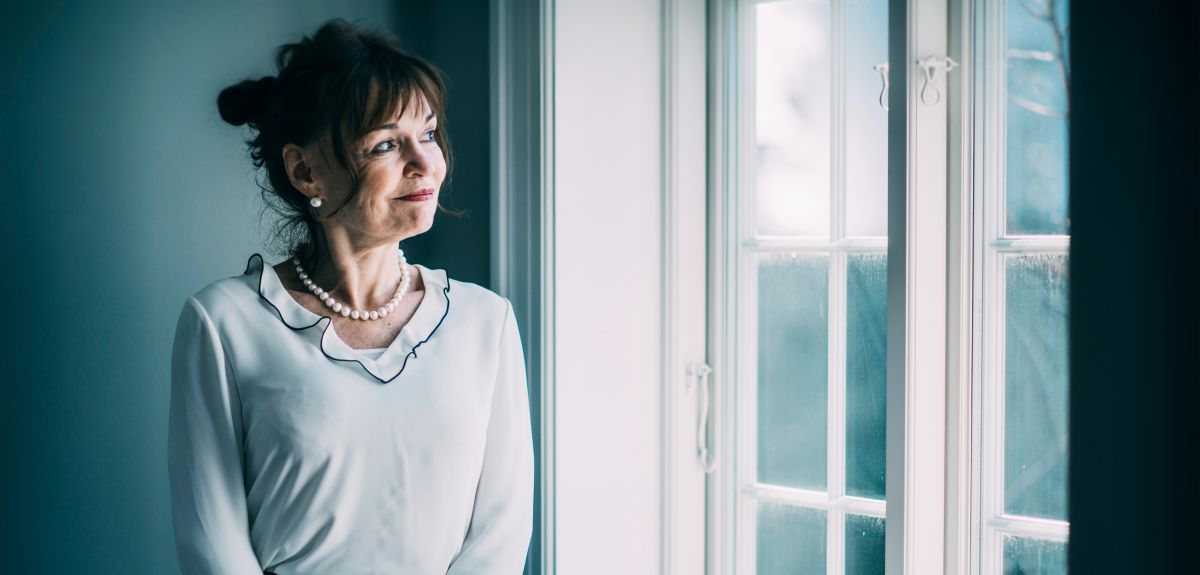
Credit: Novo Nordisk Foundation
Scientist who made proteins float in soap bubbles wins top prize
The 2019 Novozymes Prize of DKK 3 million is being awarded to Professor Dame Carol Robinson at the Department of Chemistry, University of Oxford, for her scientific breakthroughs in use of mass spectrometry for proteome analysis. Her methods are widely used in the biotech industry and have contributed to identifying both new protein drugs and new drug targets.
Professor Robinson’s journey into the world of research was quite unusual.
Working on mass spectrometry as a lab technician at Pfizer in Kent, United Kingdom, she started studying chemistry through evening classes. She received a Higher National Certificate and then left Pfizer to take an MSc degree in chemistry before completing a PhD at the University of Cambridge.
She then took an eight-year career break to concentrate on her family and raise her three children.
Returning to science, she put her energy into analysing protein complexes and went on to become the first female professor of chemistry at the University of Oxford.
Over the past two decades, Professor Robinson has been one of the main forces behind the development of mass spectrometry from a simple method for measuring the mass of small molecules to an advanced technique for measuring interactions between some of our body’s major macromolecules.
Her research has contributed to improving the understanding of membrane proteins, which play a part in many diseases and conditions, including cancer and schizophrenia.
Professor Robinson is receiving the 2019 Novozymes Prize of DKK 3 million for her unique efforts. The Prize is awarded to recognise outstanding research or technology contributions that benefit the development of biotechnological science for innovative solutions.
Professor Robinson said: 'I am extremely honoured to receive this prestigious award. I read the impressive list of previous recipients before me and am delighted to be joining this group.'
Jens Nielsen, Chair of the Novozymes Prize Committee, said: 'Carol Robinson almost single-handedly founded a subfield of mass spectrometry proteomics. She is a creative, innovative and fearless researcher and a role model for all scientists. Her unflinching pursuit of the controversial notion has now become a highly productive mainstream. Her methods have contributed to identifying both new protein drugs and new drug target interactions and has led to the development of innovative biotechnological solutions. In all respects, Carol Robinson is a worthy recipient of the 2019 Novozymes Prize.'
Soap bubbles as a vehicle
Among Professor Robinson’s many achievements is discovering how to characterise proteins in cell membranes. These are hugely important drug targets, but they are also incredibly hard to study because one part of the protein exists inside a hydrophobic membrane, whereas the parts inside and outside of the cell are hydrophilic.
'We got the idea to coat them in detergent and then send them into the mass spectrometer in a giant soap bubble. And miraculously, this bubble shield really protects them, so they are released into the gas phase intact in a folded state,' Professor Robinson explained.
In a series of landmark studies, Professor Robinson has unravelled the structure of the proteins synthesising our cell’s energy currency, ATP, and later G protein–coupled membrane receptors, which are targets for many drugs.
Altogether, many of the techniques discovered by Professor Robinson are now used routinely for rapid antibody characterisation in the pharmaceutical industry and have advanced the use of antibodies for treating people with cancer and other diseases.
'This is quite amazing. I have always hoped my findings would contribute to medicine,' said Professor Robinson.
Professor Dame Carol Robinson will officially receive the Novozymes Prize at a prize ceremony on 15 March in Bagsværd, Denmark.